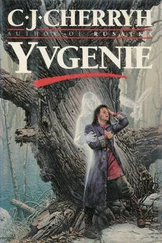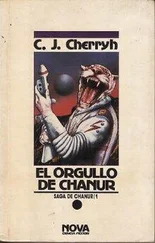C. Cherryh - Shon'jir
Здесь есть возможность читать онлайн «C. Cherryh - Shon'jir» весь текст электронной книги совершенно бесплатно (целиком полную версию без сокращений). В некоторых случаях можно слушать аудио, скачать через торрент в формате fb2 и присутствует краткое содержание. Жанр: romance_sf, на английском языке. Описание произведения, (предисловие) а так же отзывы посетителей доступны на портале библиотеки ЛибКат.
- Название:Shon'jir
- Автор:
- Жанр:
- Год:неизвестен
- ISBN:нет данных
- Рейтинг книги:3 / 5. Голосов: 1
-
Избранное:Добавить в избранное
- Отзывы:
-
Ваша оценка:
- 60
- 1
- 2
- 3
- 4
- 5
Shon'jir: краткое содержание, описание и аннотация
Предлагаем к чтению аннотацию, описание, краткое содержание или предисловие (зависит от того, что написал сам автор книги «Shon'jir»). Если вы не нашли необходимую информацию о книге — напишите в комментариях, мы постараемся отыскать её.
Shon'jir — читать онлайн бесплатно полную книгу (весь текст) целиком
Ниже представлен текст книги, разбитый по страницам. Система сохранения места последней прочитанной страницы, позволяет с удобством читать онлайн бесплатно книгу «Shon'jir», без необходимости каждый раз заново искать на чём Вы остановились. Поставьте закладку, и сможете в любой момент перейти на страницу, на которой закончили чтение.
Интервал:
Закладка:
But she had seen.
The greatest she'panei were said to have been foresighted, the greatest and holiest that had ever guided the People; and a feeling of awe possessed him when he realized that such was Melein, of one blood with him. Such kinship frightened him, to reckon that her heredity was also his, that there rested within himself something he did not understand, over which he had no power.
She was guiding them home.
The very concept was foreign to him: home efai sa-mri, the beginnings of the People. He knew, as surely all mri had always known, that once there must have been a world other than the several home-worlds-of-convenience despite that it was sung that the People were born of the Sun. All his life he had looked up only at the red disc of Arain, and, in the discipline of the Kel, in the concerns of his former life, he had never let his curiosity stray beyond that barrier of his child born belief. It was a Mystery; and it was not pertinent to his caste.
Born of the Sun. Golden-skinned, the mri, bronze-haired and golden-eyed: it had never before occurred to him that within that song lay the intimation of a sun of a different hue, and that it explained more than the custom of the Kel, who were spacefarers by preference, who cast their dead into the fires of stars, that no dark earth might possess them.
He stared at the star that lay before them, wondering where they were, whether within regul space still or elsewhere. It was a place known to generations before Kesrith, to hands that had set the record of it within the pan'en; and here too the People had seen service. Regul space or not, it must have been so: the Kel would have hired to fight, as it had always been mercenaries, by whose gold the People lived. He could not imagine anything else.
Stars beyond stars.
And from each in turn the People would have departed: so it was, in the Darks; it was unthinkable that they would have fragmented. All, all would have gone and what might move them was beyond his imagining, save only that the vision of a she'pan would have led them. They either moved to another and nearby world, or they had entered a Dark; and in the Dark, in that voyage, they would have forgotten all that pertained to that abandoned star, to that former service; they had come to the next Sun, and another service; and therafter returned to the Dark, and another forgetting, a cycle without end.
Until Kesrith, until they two began to come home, a voyage in which the era of service to regul, the two thousand years that he had believed for all of recorded time, became merely interlude.
From Dark beginning To Dark at ending,
So the People sang, in the holiest of songs.
Between them a Sun, But after comes Dark, And in that Dark, One ending. Tens of times he had sung the ritual, the Shon'jir, the Song of Passings, chanted at births and deaths and beginnings and endings. To a kel'en, it had sung only of birth and death of individuals.
Understanding opened before him, dizzying in perspective. More stars awaited them, each considered by the kel-'ein of its age to be the Sun… each era considered the whole of recorded time… until they should come in their own backward voyaging home, to the Sun itself.
To the beginning of the People.
To the hope, the faintest of hopes, that there others might remain: Niun took to him that hope, knowing that it would surely prove false that after so many misfortunes that had befallen them, it was impossible that such good could remain: they two were the last children of the People, born to see the end of everything, ath-ma'ai, tomb-guardians not only to a she'pan, but to the species.
And yet they were free, and possessed a ship.
And perhaps a religious feeling stirred in him, and a great fear it was for something else that they had been born.
Niun caressed the dus' velvet-furred shoulder, gazing at the human whose face was touched by the white light of the screen. In drugged abandonment the man slept, after giving them the ship, and his life, and his person. Niun puzzled over this, troubled, reckoned all the words and acts that had ever passed between them, that he could have moved the human to such a desperate act. Against the wisdom of the People, he had taken a prisoner; and this was the result of it that Duncan had become attached to them, stubborn as the dusei, who simply chose a mri and settled with him or died of grief.
Human instincts surely did not run in that direction. For forty years the People had struggled to deal with humans, and suffered murder for it, kel'ein butchered by this species that fought only in masses and with distance-weapons. Forty years and at the last, in human victory came Duncan, who, ill-treated, brought the whole machinery of human mercy down upon them, who cast himself and his freedom into their hands for good measure.
Tsi'mri stupidity, Niun raged in his mind, wishing that he could separate himself from tsi'mri altogether.
Yet he remembered a long and terrible dream, in which Duncan had been a faithful presence in which he had fought for his sanity along with his life, and Duncan had stayed by him.
Atonement?
Perhaps, Niun thought, what had possessed Duncan had seized on the rest of his kind; perhaps, after all, there was some strange tsi'mri sense of honor that could not abide what the regul had done as if humans would not take a victory so ill-won; as if the ruin of the People made a diminution in the universe that even humans felt, and in fear for themselves they tried to make restitution.
Not for tsi'mri, such a voyage as they made: and yet if such ever had a claim on the mri, inextricably entangled with the affairs of the People, such was Duncan from the time that he, himself, had held the human's life and missed the chance to take it.
Niun, he is tsi'mri, Melein had argued, and whatever he has done, he does not belong, not in the Dark.
Yet we take the dusei, he had said, and they are of the Between, too; and shall we kill them, that trust us?
Melein had frowned at that; the very thought was terrible, for the partnership between mri and dus was old as Kesrith. And at last she had turned her face'away and yielded. You cannot make a dus into a mri, she had said last, and I do not think you will succeed with a human either. You will only delay matters painfully; you will arm him against us and endanger us. But try, if your mind is set; make him mri, make him mri, or we must someday do a cruel and terrible thing.
"Duncan," Niun said into the dark, saw Duncan's light-bathed face contract in reaction. "Duncan.”
Eyes opened, wells of shadow in the dim light of the screen. Slowly, as if the drug still clouded his senses, the human sat up. He was naked to the waist, his strange furriness at odd contrast with his complexion. He bowed his head against his knee and ran his hand through his disordered hair, then looked at Niun.
"It is a reasonable hour," said Niun. "You do not look well, Duncan.”
The human shrugged, by which Niun understood that his ill was of the heart as much as of the body; and this he could well understand. "There are things to be done," Niun said. "You have said that there are trade supplies aboard.”
"Yes," Duncan said, a marginal lifting of his spirits, as if he had dreaded something more distasteful. "Food, clothing, metals, all that there was at the station, that was intended for mri trade. I figured it properly belonged to you.”
"You most of all have need of clothing.”
Duncan considered, and nodded in consent. He had been long enough with them to know that his naked face was an offense, and perhaps long enough to feel a decent shame. "I will see to it," he agreed.
"Do that first," said Niun. "Then bring food for the dusei, and for us both; but I will take the she'pan's to her.”
Читать дальшеИнтервал:
Закладка:
Похожие книги на «Shon'jir»
Представляем Вашему вниманию похожие книги на «Shon'jir» списком для выбора. Мы отобрали схожую по названию и смыслу литературу в надежде предоставить читателям больше вариантов отыскать новые, интересные, ещё непрочитанные произведения.
Обсуждение, отзывы о книге «Shon'jir» и просто собственные мнения читателей. Оставьте ваши комментарии, напишите, что Вы думаете о произведении, его смысле или главных героях. Укажите что конкретно понравилось, а что нет, и почему Вы так считаете.











